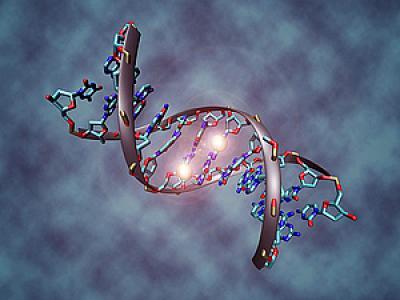 Scientists
from Mount Sinai School of Medicine have made a new computational method that
could make it easier and simpler for scientists to recognize and prioritize
genes, drug targets, and methods for repositioning drugs which are already in
the marketplace. By mining huge datasets more plainly and efficiently,
scientists should be able to better understand gene-gene, protein-protein, and
drug/side-effect interactivity. The brand new algorithm also will help
scientists recognize fellow scientists along with whom they could collaborate.
Scientists
from Mount Sinai School of Medicine have made a new computational method that
could make it easier and simpler for scientists to recognize and prioritize
genes, drug targets, and methods for repositioning drugs which are already in
the marketplace. By mining huge datasets more plainly and efficiently,
scientists should be able to better understand gene-gene, protein-protein, and
drug/side-effect interactivity. The brand new algorithm also will help
scientists recognize fellow scientists along with whom they could collaborate.
Led
by Avi Ma'ayan, PhD, Assistant Professor of Pharmacology and Systems
Therapeutics at Mount Sinai School of Medicine, and Neil Clark, PhD a postdoctoral
fellow within the Ma'ayan laboratory, the group of investigators utilized the
new algorithm to construct 15 several types of gene-gene networks. Additionally
they discovered novel connections between drugs and negative effects, and
constructed a collaboration network that connected Mount Sinai medical
investigators based on their own past publishing’s.
Dr.
Ma'ayan said: "The algorithm makes
it effortless to build networks from data. Once high dimensional and complex
data is converted to networks, we are able to understand the results better and
find new and notable relationships, and focus on the essential elements of the
results."
The
group diagnosed one million medical documents of affected individuals to build
a network that connects commonly co-prescribed drugs, generally co-occurring
negative effects, and of course the relationships between negative effects and
combinations of drugs. They discovered that reported negative effects may not
be attributable to the drugs, but by a separate condition of the individual
that could be unrelated towards the drugs. Additionally they looked at 53
cancer drugs and connected them to 32 severe side-effects. When chemotherapy
was coordinated with cancer drugs that are effective through cell signaling,
there is a powerful link to cardiovascular related adverse effects. These
findings can benefit in post-marketing surveillance overall safety of approved
drugs.
Specialist provides information on the subject of parliamentary information office, parliamentary information office, parliamentary information office, parliamentary information office, parliamentary information office, parliamentary information office, parliamentary information office, parliamentary information office, parliamentary information office, parliamentary information office, parliamentary information office, parliamentary information office, parliamentary information office, parliamentary information office, parliamentary information office, parliamentary yearbook, parliamentary year book, parliamentary information office.
ReplyDelete